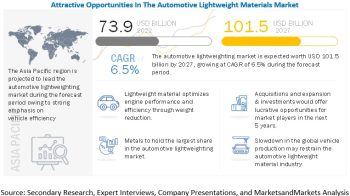
Increasing demand for autonomous and connected technologies in automotive is expected to drive the market for advanced tires.
Advanced tires comprise technologies such as chip-embedded, self-inflating, multi-chamber, and all-in-one tires. These technologies are expected to increase in-vehicle convenience significantly. These technologies help increase the durability of the tire by real-time monitoring of tire pressure. Moreover, the tire pressure within the normal range also improves the fuel efficiency of the vehicle.
The increased demand for convenience and safety while driving and the stringent emission regulations have impacted the Advanced Tires Market for on-highway vehicles, which is projected to grow at a CAGR of 17.98% during the forecast period, to reach USD 1,148.3 million by 2030 from an estimated USD 219.7 million in 2020.
The advanced tires market is dominated by a few globally established players such as Continental (Germany), Bridgestone (Japan), Michelin (France), Goodyear(US), Pirelli (Italy), Sumitomo (Japan), Yokohama (Japan), Hankook Tire (South Korea), Nokian (Finland),CEAT (India), and Toyo Tire (Japan).
The growing market for connected vehicles and demand for reduction in carbon footprints will fuel the demand for advanced tires with organic and environment-friendly raw materials. For instance, to cater to the continuously evolving automotive industry, Bridgestone launched the advanced CAIS (Contact Area Information Sensing) tires that include a sensor attached to the interior wall of the tire to monitor how the tire will interact with the road surface. The system checks road conditions to distinguish among dry, wet, slush, fresh, snow or ice and sends that real-time information to the driver via a digital screen. These types of tires are estimated to increase the sense of safety while driving.
Request FREE Sample Report @ https://www.marketsandmarkets.com/requestsampleNew.asp?id=15721834
The increasing industrialization and setting up of warehouses to support the hub and spoke model for various sectors are expected to drive the growth of industrial equipment, thereby driving the advanced tires market. Manufacturers are investing in R&D to develop technologically advanced industrial vehicles that are innovative, efficient, and cost-effective. With the rising demand for alternative fuel and eco-friendly vehicles, tire manufacturers are trying to gain market share by offering fuel-efficient, sensor-based, and lightweight tires.
The self-inflating technology is estimated to show the fastest growth for on-highway vehicles during the forecast period. Increased commercial vehicle production and demand for puncture-proof tires in commercial vehicles is estimated to drive the demand for self-inflating tires. Fleet management technologies used in developed regions such as North America and Europe are expected to drive the demand for self-inflating tires further. Additionally, safety and convenience needs in passenger cars will catalyze the self-inflating tires market.
The advanced tires are estimated to be made of more than 200 raw materials that include natural rubber, synthetic rubber, steel, and elastomers. Because of the lowering production of natural rubber, the cost of natural rubber has gone up making companies use a high composition of synthetic rubber. Additionally, synthetic rubber offers all the properties required by vehicle tires. Hence, the synthetic rubber market is estimated to grow at a healthy CAGR during the forecast period. The increasing usage of synthetic rubbers is projected to provide the opportunity for synthetic rubber manufacturers and petroleum companies.
Download PDF Brochure @ https://www.marketsandmarkets.com/pdfdownloadNew.asp?id=15721834
The rise in demand for connected tires technologies and the focus of authorities and governments on the reduction of overall carbon footprint has fuelled the demand for innovative, organic raw materials. In addition, to avoid frequent puncture issues, the demand for airless tires is also increasing in industrial equipment such as forklifts. Furthermore, the need to curb the overall carbon emission will drive the need for innovative raw materials providing the opportunity for organic raw material manufacture. The autonomous and connected technologies will open up new opportunities for tire manufacturers in the LDV and HDV segments.
Target Audience:
• On-highway Tire manufacturers
• Off-highway tire manufacturers
• Tire associations
• Automotive associations
• Tire raw material manufacturers
• Global industrial vehicle and cargo handling associations
• Government and regulatory authorities
• Research and consulting associations

